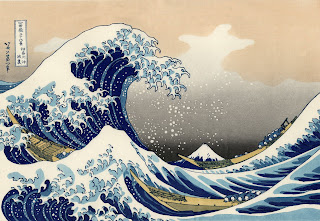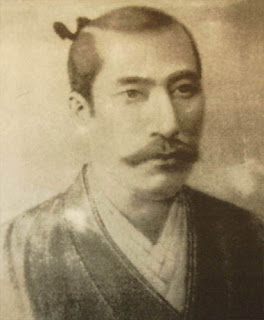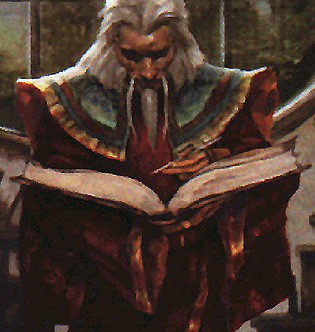mardi, 24 novembre 2009
Samurai: storia, etica e mito
La società giapponese del XVI secolo aveva una struttura definibile come feudalesimo piramidale.
Al vertice di questa ideale piramide vi erano i signori dell’alta nobiltà, i daimyo, che esercitavano il loro potere tramite legami personali e familiari. Alle dirette dipendenze dei daimyo vi erano i fudai, ovvero quelle famiglie che da generazioni servivano il proprio signore. In questo contesto i samurai rappresentavano una casta familiare al servizio dei daimyo, ne erano un esercito personale.
 Accadeva che durante le guerre feudali, il clan sconfitto, per non perdere le proprietà precedentemente conquistate, entrava a far parte dello stato maggiore del clan vincitore con funzioni di vassallaggio.
Accadeva che durante le guerre feudali, il clan sconfitto, per non perdere le proprietà precedentemente conquistate, entrava a far parte dello stato maggiore del clan vincitore con funzioni di vassallaggio.In questa organizzazione politica, quella militare dei samurai aveva caratteristiche e funzioni proprie al suo interno. Divisi in 17 categorie, i samurai avevano il compito di rispondere alla chiamata alle armi del daimyo cui facevano riferimento combattendo con armi proprie. Al di sotto dei samurai propriamente detti, ma facenti parte della stessa famiglia, vi erano i sotsu (“truppe di fanteria”) a loro volta divisi in 32 categorie.
Alla base della piramide troviamo gli ashigaru, cioè la maggior parte dei combattenti (soldati semplici diremmo oggi) che erano per lo più arcieri e lancieri o semplici messaggeri. Nei periodi di pace gli ashigaru svolgevano mansioni come braccianti del samurai incaricato al loro mantenimento.
 L’epopea dei samurai comincia nel periodo Heian (794-1185).
L’epopea dei samurai comincia nel periodo Heian (794-1185).Alla fine del XII secolo il governo aristocratico di Taira subì una sconfitta nella guerra di Genpei cedendo il potere al clan dei Minamoto. Minamoto Yoritomo, spodestando l’imperatore, assunse di fatto il potere col titolo di shogun (capo militare) e fu lui a stabilire la supremazia della casta dei samurai, che fino a tal periodo svolgeva il ruolo di classe servitrice in armi estromessa da questioni di natura politica. Nei 400 anni a venire la or più accreditata casta guerriera avrebbe svolto un ruolo decisivo nella difesa del Giappone da tentate invasioni esterne, – come quella mongola del XIII secolo –, e nelle faide interne tra i vari feudatari (daimyo), tra le quali vanno ricordate quella del periodo Muromachi (1338-1573) in cui gli shogun Ashikaga affrontarono i daimyo, e quella del periodo Momoyama (1573-1600) in cui i grandi samurai Nobunaga (in foto) prima e il suo successore Hideyoshi dopo si batterono per sottomettere il potere dei daimyo e riunificare il paese.
La politica interna troverà stabilità al termine della battaglia di Sekigahara (1600), nella quale il feudatario Tokugawa Ieyasu, col titolo di shogun, sconfiggendo i clan rivali, assumerà pieni poteri sul paese insediando il suo “regno” nella città di Edo (odierna Tokyo) e inaugurando il periodo che da tale città prese nome (1603-1867), mentre l’imperatore rimaneva di fatto confinato nell’antica capitale Kyoto.
In questo periodo la pace fu garantita dal fatto che i daimyo giurarono fedeltà, di fatto sottomettendovisi, allo shogunato e a loro volta mantennero all’interno dei loro castelli contingenti di soldati e servi. Le conseguenze per la casta dei samurai furono immediate. Divenuta una casta chiusa e non essendoci più motivi di gerre feudali, il suo ruolo guerriero assunse sempre più toni di facciata: i duelli, in un contesto dove regnava la pace tra clan, divennero per lo più di tipo privato. Lo sfoggio di abilità guerriere e l’uso della spada (per il samurai un vero e proprio culto religioso) avveniva, in maniera sempre più frequente, soltanto per scopi cerimoniali; mentre le funzioni a cui venivano sempre più spesso preposti erano di tipo burocratico ed educativo, integrandosi sempre di più nella società civile. Un segnale della trasformazione del ruolo dei samurai è testimoniato dai rapporti che questi intrapresero con il disprezzato ceto chonin (borghesia in ascesa). Tale avvicinamento ha avuto tuttavia una grande importanza per aver “esportato” i valori della “casta del ciliegio” nella società civile fino ad oggi.
 Una classe di samurai che fece la sua comparsa in questa epoca di pace fu quella dei ronin (“uomini onda” o “uomini alla deriva”). Si tratta di quei soldati rimasti senza signore perché soppresso il feudo di appartenenza; in sostanza samurai declassati.
Una classe di samurai che fece la sua comparsa in questa epoca di pace fu quella dei ronin (“uomini onda” o “uomini alla deriva”). Si tratta di quei soldati rimasti senza signore perché soppresso il feudo di appartenenza; in sostanza samurai declassati.Con la caduta dell’ultimo shogunato, vale a dire quello di Yoshinobu Tokugawa, ebbe inizio l’era Meiji (1868-1912). Fu questo un periodo di radicali riforme, note con il nome di “rinnovamento Meiji”, le quali investirono a pieno anche la struttura sociale del Sol levante: l’imperatore tornava ad essere la massima figura politica a scapito dello shogunato, lo Stato fu trasformato in senso occidentale e i feudi soppressi. La casta samurai abolita in funzione di un esercito nazionale.
L’arte e l’onore. La morte e il ciliegio
La costante ricerca di una condotta di vita onorevole si fondeva, nell’etica della guerra del samurai, con una disciplina ferrea nell’addestramento marziale. Anche durante la pace del lungo periodo Edo, i samurai coltivarono le arti guerriere (bu-jutsu, oggi budo). Le principali discipline praticate e di giorno in giorno perfezionate erano il tiro con l’arco (kyu-jutsu, oggi kyudo), la scherma (ken-jutsu, oggi kendo) e il combattimento corpo a corpo (ju-jutsu, oggi più comunemente conosciuto come ju-jitsu).
 La katana (“spada lunga”) era il principale segno di identificazione del samurai e l’acciaio della lama incarnava tutte le virtù del guerriero; ma più che questa funzione meramente riconoscitiva, la spada rappresentava un vero e proprio oggetto di culto. L’attenzione rivolta nel costruirla (sarebbe più preciso dire crearla), nel curarla e nel maneggiarla dà l’impressione che la spada venisse venerata più che utilizzata.
La katana (“spada lunga”) era il principale segno di identificazione del samurai e l’acciaio della lama incarnava tutte le virtù del guerriero; ma più che questa funzione meramente riconoscitiva, la spada rappresentava un vero e proprio oggetto di culto. L’attenzione rivolta nel costruirla (sarebbe più preciso dire crearla), nel curarla e nel maneggiarla dà l’impressione che la spada venisse venerata più che utilizzata.Trattando la figura del samurai non è possibile scindere l’allenamento fisico da quello spirituale, così come non è possibile scindere l’uomo dal soldato; tuttavia, per fini esemplificativi, potremmo dire che se il braccio era rafforzato dalla spada, lo spirito era rafforzato dalla filosofia confuciana. Fin da bambino, il futuro guerriero, veniva educato all’autodisciplina e al senso del dovere. Egli era sempre in debito con l’imperatore, con il signore e con la famiglia e il principio di restituzione di tale debito era un obbligo morale, detto giri, che accompagnava il samurai dalla culla alla tomba.
 Il codice d’onore del samurai non si esauriva, tuttavia, nel principio giri, ma spaziava dal disprezzo per i beni materiali e per la paura, al rifiuto del dolore e soprattutto della morte. È proprio per la preparazione costante all’accettazione della morte che il samurai scelse come emblema di appartenenza alla propria casta il ciliegio: esso stava infatti a rappresentare la bellezza e la provvisorietà della vita: nello spettacolo della fioritura il samurai vedeva il riflesso della propria grandezza e così come il fiore di ciliegio cade dal ramo al primo soffio di vento, il guerriero doveva essere disposto a morire in qualunque momento.
Il codice d’onore del samurai non si esauriva, tuttavia, nel principio giri, ma spaziava dal disprezzo per i beni materiali e per la paura, al rifiuto del dolore e soprattutto della morte. È proprio per la preparazione costante all’accettazione della morte che il samurai scelse come emblema di appartenenza alla propria casta il ciliegio: esso stava infatti a rappresentare la bellezza e la provvisorietà della vita: nello spettacolo della fioritura il samurai vedeva il riflesso della propria grandezza e così come il fiore di ciliegio cade dal ramo al primo soffio di vento, il guerriero doveva essere disposto a morire in qualunque momento.Se morte e dolore erano i principali “crimini”, lealtà e adempimento del proprio dovere erano le principali virtù; atti di slealtà e inadempienze erano (auto)puniti con il seppuku (“suicidio rituale”, l’harakiri è molto simile, ma è un’altra cosa...).
Il codice d’onore del samurai è espresso, dal XVII secolo, nel bushido (“via del guerriero”), codice di condotta e stile di vita riassumibile nei sette princìpi seguenti:
- 義, Gi: Onestà e Giustizia
Sii scrupolosamente onesto nei rapporti con gli altri, credi nella giustizia che proviene non dalle altre persone ma da te stesso. Il vero Samurai non ha incertezze sulla questione dell’onestà e della giustizia. Vi è solo ciò che è giusto e ciò che è sbagliato.
- 勇, Yu: Eroico Coraggio
Elevati al di sopra delle masse che hanno paura di agire, nascondersi come una tartaruga nel guscio non è vivere. Un Samurai deve possedere un eroico coraggio, ciò è assolutamente rischioso e pericoloso, ciò significa vivere in modo completo, pieno, meraviglioso. L’eroico coraggio non è cieco ma intelligente e forte.
- 仁, Jin: Compassione
L’intenso addestramento rende il samurai svelto e forte. È diverso dagli altri, egli acquisisce un potere che deve essere utilizzato per il bene comune. Possiede compassione, coglie ogni opportunità di essere d’aiuto ai propri simili e se l’opportunità non si presenta egli fa di tutto per trovarne una.
- 礼, Rei: Gentile Cortesia
I Samurai non hanno motivi per comportarsi in maniera crudele, non hanno bisogno di mostrare la propria forza. Un Samurai è gentile anche con i nemici. Senza tale dimostrazione di rispetto esteriore un uomo è poco più di un animale. Il Samurai è rispettato non solo per la sua forza in battaglia ma anche per come interagisce con gli altri uomini.
- 誠, Makoto o 信, Shin: Completa Sincerità
Quando un Samurai esprime l’intenzione di compiere un’azione, questa è praticamente già compiuta, nulla gli impedirà di portare a termine l’intenzione espressa. Egli non ha bisogno né di “dare la parola” né di promettere. Parlare e agire sono la medesima cosa.
- 名誉, Meiyo: Onore
Vi è un solo giudice dell’onore del Samurai: lui stesso. Le decisioni che prendi e le azioni che ne conseguono sono un riflesso di ciò che sei in realtà. Non puoi nasconderti da te stesso.
- 忠義, Chugi: Dovere e Lealtà
 Per il Samurai compiere un’azione o esprimere qualcosa equivale a diventarne proprietario. Egli ne assume la piena responsabilità, anche per ciò che ne consegue. Il Samurai è immensamente leale verso coloro di cui si prende cura. Egli resta fieramente fedele a coloro di cui è responsabile.
Per il Samurai compiere un’azione o esprimere qualcosa equivale a diventarne proprietario. Egli ne assume la piena responsabilità, anche per ciò che ne consegue. Il Samurai è immensamente leale verso coloro di cui si prende cura. Egli resta fieramente fedele a coloro di cui è responsabile.Che i Samurai, nei tanti secoli della loro storia, si siano sempre e comunque attenuti a questi princìpi, è un elemento di certo secondario, né tantomeno spetta a noi il compito di ergerci a giudici. Ciò che rimane indelebile e si manifesta in tutta la sua grandezza è invece lo spirito autentico e “romantico” di un’etica guerriera (ma non solo guerriera) fondata sul rispetto, l’onore, la lealtà, la fedeltà, il coraggio e l’abnegazione: valori che furono incarnati da molti samurai i cui nomi sono stati – a buon diritto – consegnati alla storia. E in una società che sembra aver smarrito la bussola, sempre timorosa (finanche di se stessa), l’etica samurai potrebbe rappresentare un ausilio, una salda coordinata per un recupero dell’autocoscienza e della padronanza di sé; sicuramente un ottimo strumento per il rifiuto di un’esistenza meschina ed esclusivamente materiale e per una riscoperta del proprio spirito. Lo stesso spirito che animò i “guerrieri-poeti” i quali, grazie alla lama della loro spada e al tenue turbinare dei fiori di ciliegio, seppero coniugare sapientemente Poesia e Azione.
00:10 Publié dans Traditions | Lien permanent | Commentaires (0) | Tags : japon, japonologie, éthique, philosophie, ethnologie, anthropologie, tradition, traditionalisme, extreme orient, asie, affaires asiatiques |  |
|  del.icio.us |
del.icio.us |  |
|  Digg |
Digg | ![]() Facebook
Facebook
Le rapport politique-ésotérisme: entretien avec le Prof. G. Galli
 Archives de SYNERGIES EUROPEENNES - 1997
Archives de SYNERGIES EUROPEENNES - 1997
Le rapport politique-ésotérisme
Entretien avec le prof. Giorgio Galli
Pendant de nombreux siècles, les rois, les empereurs, les hommes politiques, toujours isolés de leurs contemporains, ont demandé les conseils de “mages”, d'astrologues, de voyants, d'alchimistes, avant de prendre des décisions importantes. Ces curieux conseillers étaient toujours présents, plus ou moins officiellement, dans l'orbite des hommes qui les consultaient fidèlement. La révolution scientifique nous a fait croire que le mystérieux filon occulte qui s'insère entre la politique et les pratiques ésotériques s'était dilué et avait disparu. Mieux vaut être prudent avant de l'affirmer péremptoirement! Même à notre époque pleinement sécularisée, marquée par un grand scepticisme, par l'athéisme généralisé, on peut repérer les liens obscurs unissant de mystérieuses congrégations aux hommes du pouvoir.
Giogio Galli, professeur d'histoire des doctrines politiques à l'Université de Milan, s'est préoccupé de ces thématiques, en écrivant des livres qui ont suscité la curiosité, l'intérêt mais aussi causé une certaine inquiétude. Nous lui avons demandé de nous expliquer dans quelle mesure l'ésotérisme influence les lieux du pouvoir dans le monde occidental, au seuil du troisième millénaire.
GG: «Les rapports entre l'ésotérisme et la politique n'ont plus de nos jours la continuité qu'ils avaient dans les temps passés, mais le phénomène n'est pas pour autant épuisé depuis l'avènement de la révolution scientifique. Il est moins apparent, mais il est néanmoins présent. En notre siècle qui s'achève, à côté des idéologies de masse qui ont favorisé l'avènement de l'homme nouveau, dominateur de la technique et de la science, forgé dans l'acier des fabriques et prêt à se jeter dans les tempêtes d'acier comme l'a décrit Ernst Jünger, nous voyons réémerger des cultures anciennes qui, bientôt, influeront les événements historiques. De la mystérieuse figure de Raspoutine installée à la cour des Tsars aux voyants consultés par Hitler pendant la guerre, on constate que les hommes à la tête de la politique mondiale contemporaine ont consulté des astrologues connus: autant de phénomènes qui contredisent l'apparent cynisme de notre société contemporaine et démontrent que l'homme, même s'il est puissant, a besoin de croire en quelque chose».
Q: Depuis plusieurs années, vous avez étudié les rapports entre la culture politique et les anciennes cultures ésotériques. En lisant vos livres consacrés à cette thématique, comme Hitler e il nazismo magico, La politica e i maghi, Alba magica, des pans obscurs des époques historiques récentes se révèlent et j'ai noté que l'ésotérisme en politique intéresse davantage la droite que la gauche. Comment cela se fait-il?
GG: «Je crois plutôt que la présence de l'occultisme est transversale et se retrouve dans tous les camps politiques, même si divers penseurs auxquels la droite extrême fait constamment référence, comme Julius Evola ou Ernst Jünger, ou l'entourage des SS de Himmler, ou les savants nationaux-socialistes qui se préoccupaient du Graal, se sont profondément intéressés aux arts ésotériques. Les écrivains Pauwels et Bergier, auteurs d'un livre devenu rapidement très célèbre, Le matin des magiciens, ont donné une définition lapidaire du national-socialisme: «C'est Guénon plus les Panzerdivisionen». René Guénon fut un grand connaisseur des cultes traditionnels pré-chrétiens et est devenu une sorte de “phare illuminant” pour certains cercles de la droite dure en Europe. Ces phénomènes idéologico-politiques nous amènent à constater ce que vous venez d'évoquer dans votre question: l'ésotérisme semble être un engouement des droites dures, mais, à l'analyse, on doit constater qu'il est présent dans toute la sphère politique et n'est nullement un apanage exclusif des droites. La recherche de l'irrationnel est profondément ancrée dans l'âme humaine. La science ne peut pas expliquer aux hommes pourquoi ils sont nés, pourquoi ils tombent amoureux, pourquoi ils meurent, etc.».
Q.: D'aucuns prétendent que lorsque l'on ne croit plus en Dieu, on croit en tout le reste...
GG: «Nous nous trouvons face à une grande crise des religions institutionalisées de modèle occidental. Le christianisme s'est transformé, alors que le mystère nous accompagne tout au long de notre vie. Le sacré connait une éclipse, aussi parce que l'Eglise catholique ne réussit plus à donner une réponse convaincante aux questions que les hommes lui posent. L'illusion des Lumièresa réduit les mystères de l'univers, ce qui s'est avéré une erreur. En outre, dans le monde entier, on assiste à un retour aux peurs ataviques de la fin des temps, parce que nous approchons le passage d'un millénaire à un autre. Toutes ces situations sont le terrain de culture de doctrines plus ou moins ésotériques, présentes en filigrane dans la société moderne: de l'homéopathie au New Age, de la prolifération des cartomanciennes aux prédicateurs itinérants. Ce vaste champ, qui a été jusqu'ici ignoré des historiens et des sociologues, pourrait être défini comme celui de la “fantapolitologie”: il pourrait révéler des indices intéressants sur la société actuelle. C'est pour cette raison que j'étudie le phénomène avec une attention soutenue».
Q.: Les symboles utilisés par les mouvements politiques peuvent avoir une signification dépassant le message politique proprement dit et renouer avec des mythes très anciens. Que pensez-vous de la récupération par la Lega Nord de Bossi des traditions celtiques et lombardes-germaniques? Et du symbole de la Padanie, le “Soleil des Alpes”?
GG: «Il me semble que la Ligue, qui existe depuis bientôt quinze ans, a connu des évolutions diverses. Le concept de Padanie est très récent et s'est imposé dans une phase de l'évolution du mouvement, où l'aspect symbolique est devenu plus important, où l'on assiste à la réémergence graduelle de cultures alternatives, y compris dans le champ politique. Aujourd'hui, la Ligue cherche à créer une identité padanienne, mais qui ne pourra pas se profiler sur une base seulement économique, religieuse ou linguistique, vu que la Padanie n'est pas l'Ecosse. D'où le projet de fonder cette identité sur un symbole fort. Indubitablement, la symbolique padanienne semble jouir d'un certain succès: la couleur (le vert) et le symbole (le Soleil des Alpes) sont immédiatement et clairement perceptibles. Evidemment, nous ne sommes pas en mesure de jauger de l'efficacité d'un tel message à court terme. Je ne crois pas que la référence à la culture celtique soit adaptée à la Padanie actuelle. Les Celtes possédaient une vision du sacré fortement liée à la nature. Les prêtresses druidiques y jouaient un rôle important. Les croyances celtiques n'ont rien de commun avec la culture des habitants de la Padanie en 1997».
Q.: De quoi parlera votre prochain livre?
GG: «Il traitera d'un aspect social particulier de l'Italie contemporaine. Je vais me référer au premier livre que j'ai écrit et j'intitulerai mon nouvel ouvrage Italia e meriggio dei maghi (= L'Italie et le midi des mages). Je parlerai des innombrables personnes qui se sont rapprochées des cultures restées jusqu'ici marginales dans la société post-industrielle. Je vais démontrer que ces personnes n'ont pas choisi cette voie parce qu'elles se défient de la science, ou qu'elles ne l'ont pas empruntée uniquement en raison d'une telle méfiance. En Italie, un quart de la population se tourne désormais vers la médecine alternative, croit aux horoscopes, visite les cartomanciennes ou se rapproche des philosophies orientales. L'Italie est en train de changer, sous bon nombre d'aspects».
(propos recueillis par Gianluca Savoini, parus dans La Padania, 22 oct. 1997; trad. frtanç.: Robert Steuckers).
00:05 Publié dans Entretiens | Lien permanent | Commentaires (0) | Tags : politique, ésotérisme, théorie politique, politologie, sciences politiques, histoire, traditions, tradition, traditionalisme |  |
|  del.icio.us |
del.icio.us |  |
|  Digg |
Digg | ![]() Facebook
Facebook
lundi, 23 novembre 2009
Meltdown
 Meltdown
Meltdown
February 19, 2009
By Joe Priestly / http://bnp.org.uk
It seems like every day brings with it a new and significant development and always more evidence of the conspiracies and cock-ups of Brown and co. It’s impossible to keep pace with events – this feels like meltdown. Nothing works and nothing makes sense; reality is catching up with the liblabcon fantasy.
Over the past sixty years or so the liblabcons have been spinning a web of lies to justify the destruction of British culture and the genocide of the British people. Their common purpose is to remake Britain as a society consisting of peoples and cultures from every corner of the earth. The responsibility for putting in place the final pieces of this multicultural jigsaw fell to the New Labour government, ably supported of course by the ‘opposition’. The economy was the key. It was essential that people had money to spend on the latest distractions. Hence the government-sponsored credit boom; it was a smokescreen behind which they hid our demise.
They didn’t want us to trouble ourselves with concerns about immigration, Islam, asylum, education, crime, the EU… just in case we came to the wrong conclusion. So they gave us easy credit and unbridled consumerism and added the big match and the soaps to stop us thinking about what really matters.
But a financial storm blew away their easy-money smokescreen and left the liblabcons with nowhere to hide. People are now counting their pennies and thinking less about hi-tech toys and the latest Big Brother controversy and more about the state of the nation and its impact on their lives and futures. They’re waking up to the mess that the liblabcons have made of this country.
The establishment is ideology-led and has convinced itself that nature can be moulded to fit its plan. And it’s this thinking that’s brought Britain to its sorry state. But perhaps it had to come to this. Maybe nothing short of crisis would have woken us from our slumber – that is the British way isn’t it? It seems to me though that we’re waking up now. What’s that they say about the problem being the catalyst for its own solution? And we can see it in action in the increasing number of people who are making the connection between the ideology and its manifestations.
The establishment is founded on a lie so monumentally absurd that it’s spent all its life lurking between the lines and only ever appearing as hint and suggestion. Stripped of all its camouflage the bare-faced lie is that the genocide of the British people is good for the British people – little wonder they had to sugar-coat it with a billions tending towards trillions credit boom.
But that alone wasn’t enough. It was necessary also for them to rework every aspect of society to discourage dissent and to encourage the British people’s acquiescence in their own genocide. It worked for a long time and that and the booming economy encouraged the liblabcons to think that the good times would last forever and that their transformation of Britain would proceed unnoticed.
That was then; the party finished a while back. Post party, in the cold light of a looming depression, the changes imposed on Britain are not all that their liblabcon architects had painted them to be. What they said would be utopia looks increasingly like chaos – and that’s before the lights start going out. The consequences of the lie are beginning to be felt and it’s dawning on British people that the reality of the lie is their destruction.
And as Nazi Propaganda Minister Goebbels* observed, “The lie can be maintained only for such time as the state can shield the people from the political (and) economic… consequences of the lie.” And he should know. The British political and media establishment used the credit boom to soften the impact of its ideology on the population; they encouraged people to focus on personal gain while they got on with the job of creating 21st century multiracial multicultural Britain. But the boom has turned to bust and their lie is there for all to see.
Politicians, power brokers, celebrities, and mainstream media-types have staked their reputations (read fortunes) on their sick lie and its bastard child multiracial multicultural Britain. The maintenance of the lie is all that separates them from ruin; without it they’d be irrelevant. They are the status quo and everything they do is aimed at holding that position; they have no choice but to maintain the lie. But now the spend fest is over. The cupboard is bare and winter approaches; the liblabcons have run out of the means to shield the British people from the consequences of the lie. The reality of mass third world immigration is upon us.
If we take fact as truth then a lie is a deliberate distortion of fact. In respect of mass immigration and its impact on British society the establishment distorts the facts so as to paint a positive picture of its creation the multiracial multicultural society. But the nearer a disaster looms the more it is recognised for what it is, irrespective of official explanations. Ignoring facts doesn’t make them go away nor does it diminish their truth.
The establishment lost the argument years ago and their position now is entirely dependant upon those members of the population that remain indifferent to politics and politicians until they impact on them personally. But the collapse of consumerism and the maturation of the multiracial multicultural society is encouraging even the formerly indifferent to pay attention to the shenanigans of people in power. The establishment sold out for short term advantage and the short term is almost up; the theft of a nation from under the noses of its people isn’t something that can go unnoticed forever. The British people are waking up to the liblabcons’ crimes.
Having distorted the facts for six decades the British establishment is in no position to face them. Facing facts will expose the lie and their world will come crashing down. Britain is a multiracial multicultural society because the establishment ignored the facts; in spite of the fact of the chaos of third world multiracial multicultural societies, Britain’s political and media elite facilitated the importation of millions of third world aliens into our midst as part of a plan to make Britain into such a society. Now the predictable is happening; multiracial multicultural chaos is playing on our streets.
Of course they never would have predicted it. Their world view, their equality dogma, prohibits any such prediction. And whereas a growing number of the rest of us are coming to believe that the liblabcons were negligent in failing to anticipate the chaos that would accompany mass third world immigration, the liblabcons continue the charade of the multiracial multicultural society as utopia – in the face of growing evidence to the contrary. You’ve got to laugh.
The liblabcons put me in mind of a kind of circus act that I saw on TV years ago but haven’t seen since. I don’t know what it’s called but it involved spinning plates (crockery) on canes. Those that know what I’m talking about please hum along for a moment while I explain for those that don’t… A number of canes (at a guess about 50) is set vertically and fixed at the lower point, the ‘artist’ gyrates each cane in turn and sets a plate spinning on the upper point so that it balances under its own momentum, he does the same with each cane until each has a plate spinning on it. He then attempts to maintain this equilibrium by moving from one cane to another to tend to those plates in danger of slowing beyond the critical and crashing to the floor. In a short while his movement has become a rush from one cane to another as the plates lose momentum faster than he can maintain it. And then the inevitable happens. First one plate then another and another until almost in unison the rest crash to the floor.
Their situation is analogous to that of the circus artist upon the realization that the inevitable is, well, inevitable. The plates haven’t yet all crashed to the floor but they’re going to. Like the circus artist the liblabcons have created something that can’t be maintained but unlike him they can’t just throw up their hands and walk away from the crashing plates; they’ve got far too much invested in keeping things spinning for as long as possible.
But in a meltdown everything goes wrong. And the liblabcons’ frantic effort to keep their metaphorical plates spinning merely draws attention to the illogic of setting them spinning that way in the first place. Our economy and our society aren’t working because they’re founded on an ideological fallacy, universal equality and the theory of the interchangeability of man. Yet the liblabcons’ solutions to the problems caused by their way of thinking is yet more of the same; they’re trying to solve society’s problems with the same thinking that created them. And they’re beginning to look ridiculous because of it; every time they open their mouths they contradict themselves. Their world view is in meltdown, and yet it looked so good on paper – or so they used to say.
To paraphrase Karl Marx, Marxism is collapsing under the weight of its own contradictions. There’s so much going wrong now in this country that our establishment and its idiotic thinking are permanently under the spotlight and both are being revealed as barrels of contradiction. That’s why no liblabcon type will ever stand his ground – they haven’t got a coherent argument so they avoid argument. It’s a variation on the no-platform theme. Even establishment media persons are shuffling their feet away from liblabcon egalitarianism. The lie is being found out and every time an establishment mouthpiece attempts a cover up they succeed only in shoving their foot further down their throat. Everything they do is founded on a lie and the lie is being undone by its own contradictions.
British society today is a manifestation of liblabcon equality ideology. The alienation that we feel is a consequence of society following the incoherent ideology of egalitarianism, which quite literally doesn’t make sense. It is smoke and mirrors and it’s survived to this point, since WWII, on a combination of bullying, bullshit, and brass neck. It’s bullied, bullshit, and brass necked its way to intimidating the rest of us into going along with its world view. But in spite of the power of its ‘followers’, equality ideology has never convinced more than a committed few. Tolerance of its ‘inherent contradictions’ requires a dedication far beyond the means of most people; the majority of those that go along with equality ideology do so because it’s the direction of least resistance.
The reality is that equality ideology has a fundamental weakness; it lacks continuity. Its argument is riddled with inconsistencies and so its proponents always seek refuge in vagueness. These people need plenty of room for manoeuvre.
Yet their room for manoeuvre is shrinking. It’s becoming clearer by the hour that the problem is the liblabcons and their equality thinking – the logical conclusion of which is the state of Britain today, economically, socially, and spiritually. Having created this mess, the establishment is now in the unfortunate position of not only having to defend it but to promote it as well. And so naturally incoherence features in every aspect of everything that the establishment does and says. Whatever the policy, whatever the department, whatever the statement, you know it won’t make sense. There are countless examples of the idiocy of liblabcon thought in action; three which immediately come to mind are free movement of labour, the incarceration of immigrants, and the Afghanistan ‘war’.
In their blind pursuit of ‘equality’ the liblabcons sanctioned the free movement of labour and in so doing signed away this country’s right to favour its own workers on its own soil over foreign workers on its soil – surely the most treasonable act ever committed. I wonder if they think they’re going to get away with that one forever. And as if that wasn’t bad enough, from the liblabcons’ long term health point of view that is, by severing their commitment to their own population they sort of compound their problems by effectively making themselves redundant. If they’re not there to represent our interests what exactly are they for? Is that what they mean by an unintended consequence, or was it intended and part of a conspiracy of extreme subtlety? I can never work out whether their determination to have us see them as lying, idiotic, thieving, hypocritical, treacherous cowards is due to incompetence or whether it’s part of a cunning plot that’s beyond my wit to understand.
It seems to me they’re paying the price of living a lie and the lie is coming back to haunt them.
Having said that, I’m sure I could put the case for the liblabcons better than they do. Consider the gaga they offer in explanation for the statistical over-representation of ethnic minorities in prisons and in secure mental health institutions. You don’t need me to tell you what it is – they parrot the Marxist line, that these inequalities of outcome are a consequence of the racism of the criminal justice and mental health systems. Any other explanation would set in motion a train of thought that leads back to the source of the problem, equality dogma and its application; the Marxists’ intention is to set the train of thought on a wild goose chase after whites as the cause of the problem. It’s the easy option and it’s the only one that doesn’t question their insane world view.
But there’s a nice irony in this; their explanation is a perfect example of the inconsistency it was intended to disguise. For them the problem is not the equality idea but opposition to the idea. And so every explanation they offer for any of society’s problems must always be tailored to protect the easily bruised equality idea. It’s this that has them tripping over their own feet.
Ethnic minorities are over-represented in prisons and mental hospitals either because they’re more inclined to criminality and mental health problems or because they’re not treated the same as the majority population. If it’s not one it’s the other. And that’s a no brainer for the establishment whose equality dogma dictates that ethnic minorities can never be the cause of any problem. The problem therefore is the majority population. It’s that catch-all again, racism, the only explanation that doesn’t question the equality idea.
But it’s here they get their wires crossed. According to them the criminal justice system is racist because it treats ethnic minorities differently from ethnic Britons, and the mental health system is racist because it treats ethnic minorities the same as ethnic Britons and fails to take into account cultural and ethnic difference in behaviour when diagnosing mental illness. Doesn’t that just sum up these gibbering liblabcon wrecks? The criminal justice system is racist because it discriminates; the mental health system is racist because it doesn’t discriminate.
They’re less concerned with the soundness of their argument than they are with arriving at the right conclusion; equality ideology must never be seen to be a problem. All their roads lead to racism.
The “racism” accusation began as a tactic, it developed into a strategy, and now it looks increasingly like a last ditch effort. You can tell they’re no longer comfortable with it, it’s like they’re suddenly aware that British people are sick to death with the accusation and contemptuous of its argument. But when liblabcon backs are against the door – it’s either racism or the admission that their thinking has been wrong all along.
Nothing they say makes sense because their argument is founded not on hard facts but on wishful thinking. Their explanations run contrary to the facts and as the facts become clearer so do the holes in the explanations. That’s what’s happening now; the reality of the multiracial multicultural society is hitting home and the liblabcons’ equality/diversity sweet talk is at such odds with the facts that it’s encouraging the scepticism it’s designed to stop.
Consider the conflict in Afghanistan: The establishment is putting our soldiers’ lives on the line in Afghanistan allegedly to protect Britain from terrorism yet at the same time it keeps Britain’s borders open to any Tom, Dick, or Harry who cares to cross them. Anybody else see the contradiction here? Yet the liblabcons don’t get it – their idiotic ideology won’t allow them to.
They’re in denial. It’s a common response to overwhelming collapse. They’re taking the only option open to them, they’re burying their faces in their comfort blankets and singing nursery rhymes about joy and diversity. Liblabcon thought is reaching its logical conclusion – illogicality. They’re in meltdown.
00:15 Publié dans Actualité | Lien permanent | Commentaires (0) | Tags : philosophie, sociologie, grande-bretagne, angleterre, europe, affaires européennes, politique, politique internationale, réflexions personnelles |  |
|  del.icio.us |
del.icio.us |  |
|  Digg |
Digg | ![]() Facebook
Facebook
Sol Innocentis
Sol Innocentis
Qui se tient au soleil et ferme les yeux,
Commence à ne plus savoir ce qu'est le soleil,
Et à penser maintes choses pleines de chaleur.
Mais il ouvre les yeux et voit le soleil,
Et voilà qu'il ne peut plus penser à rien,
Parce que la lumière du soleil vaut mieux que les pensées
De tous les philosophes et de tous les poètes.
La lumière du soleil ne sait pas ce qu'elle fait
Et pour cela elle n'est pas erronée, elle est commune et bonne.
(Alberto Caeiro, Le gardeur de troupeaux, V)
Trouvé sur: http://lephoton.hautetfort.com/
00:15 Publié dans Traditions | Lien permanent | Commentaires (0) | Tags : poésie, soleil, tradition, traditionalisme |  |
|  del.icio.us |
del.icio.us |  |
|  Digg |
Digg | ![]() Facebook
Facebook
Arthur Moeller van den Bruck: Nationalistisch
 Arthur MOELLER VAN DEN BRUCK:
Arthur MOELLER VAN DEN BRUCK:
Nationalistisch
http://rezistant.blogspot.com/
Man kann das Wort nicht in Verruf tun, wenn die Sache ihr Recht hat.
Deutsche hofften nach unserem Zusammenbruche, sich in dem Leben, das man uns immerhin liess, ohne Nationalismus einrichten zu können. Aber in einem Schicksale richtet man sich nicht ein. In einem Schicksale unterliegt man, oder obsiegt man.
Wir wollten dies nicht wahrhaben. Deutsche gedachten ein Geschäft mit dem Schicksale zu machen. Sie wollten sich die Gegenwart erkaugen, indem sie eine Schuld einräumten, die wir nich thatten. Und was an Zukunft bevorstand, das suchten sie durch eine Erfüllungspolitik hinauszuschieben, die wir zunächst einmal auf uns nahmen und an die wir doch nicht recht glaubte. Man konnte nicht oberflächlicher sein, wenn man auf diese Weise den Folgen eines verlorenen Krieges zu entgegen suchte. Und wir konnten nicht undeutscher sein, weil wir wider allen angeborenen Ernst der Nation handelten.
Der elfte Januar musste kommen, um uns zur Besinnung zu bringen. Von den Ereignissen, die dieser Tag heraufführte, hatte man uns immer versichert, dass es niemals zu ihnen kommen werde. An diesem Tage zerriss die geflissentliche Täuschung. und eine Änderung ging in der Nation vor sich, deren Menschen zum ersten Male das Schicksal eines besiegte, eines darniedergeschlagenen, eines in Ketten gelegten Volkes begriffen.
Von diesem elften Januar an gibt es ein Recht auf Nationalismus in Deutschland. Jetzt kann man uns nicht mehr mit der Ausflucht kommen, es gebe auch andere und internationale Wege, um an das eine und einzige Ziel einer wiedererrungenen deutschen Selbständigkeit zu gelangen, über das sich alle Parteien, wie sie versichern, einig sind.
Nationalist ist, wer sich nicht in das Schicksal der Nation ergibt, sondern ihm widerspricht.
Nationalismus ist heute in Deutschland: Widerstand.
II.
Wenn der Nationalismus die Nation will, dann müsste es, sollte man meinen, das Natürliche sein, dass auch die Nation den Nationalismus will.
Aber in Deutschland ist, so scheint es, das Natürliche nicht das Politische, sondern das Unpolitische. Franzosen, Italiener, Engländer sind von einer anderen politischen Rasse. Es sijnd ältere Völker, die den Sinn ihrer Geschichte verstanden haben. Ihre Erfahrungen auf dieser Erde sitzen ihnen im Blute. Ihre Menschen werden mit ihnen geboren. Und Generation gibt sie an Generation als politischen Instinkt und als diplomatische Disziplin weiter.
Nur in Deutschland ist möglich, dass es Frankophile in einem Augenblicke gibt, in dem Frankreich die Nation weissbluten lässt. Es hat bei uns immer eine Franzosenpartei gegeben. Sie hat in Überläufergewalt schon mit den Römern paktiert. Sie hat später in Fürstengestalt mit dem Hofe von Versailles paktiert. Sie möchte heute mit der französischen Wirtschaft paktieren. Sie ist seit dem elften Januar einigermassen kleinlaut geworden. Sie gibt sich sogar den patriotischen Anschein, als missbillige sie die französischen Methoden. Aber sie treibt ihre Minierung weiter und wartet nur auf die Stunde, in der sie ihr Werk in der Öffentlichkeit fortsetzen kann.
Die Frankophilen wissen, was sie politisch wollen. Das Proletariat weiss dies nicht. Es nimmt bereits seinen Drang zur Wirklichkeit. In den westlichen Ländern war der Sozialismus immer nur ein Sprungbrett für den Politiker. Wenn er aus der Opposition, in der er seine Grünlingsjahre zubrachte, in den Staat mit dessen Ämtern übertrat, dann vollzog er diesen Stellungswechsel ohne Wimperzucken als ein Nationalist. Der deutsche Arbeiter hat die sozialistische Botschaft mit dem so schweren, so gründlichen, so versessenen Ernste aufgenommen, mit dem Deutsche sich einer Idee hinzugeben pflegen. Auch das Erlebnis des Völkerkampfes hat seinen Glauben an den Klassenkampf nicht zu erschüttern vermocht. Er hofft nach wie vor auf eine der drei Internationalen. Der Nationalist muss sich mit der Tatsache nicht abfinden, nein, sondern auseinandersetzen, dass es Millionen von Deutschen gibt, die von der Idee der Nation marxistisch wegerzogen worden sind. Er erfährt in jeder innenpolitischen und in jeder aussenpolitischen Beziehung, wie diese Idee der Nation über die ganze Erde hin, aber nirgendwo mit einem solche Erfolge wie im sozialistischen Deutschland, ständig von der Idee der vereinigten Proletariate aller Länder gekreuzt wird. Diese Idee eines grossen proletarischen Klassenkampfes trennt den deutschen Arbeiter von seiner heute so gefährdeten und umdrohten Nation. Der deutsche Nationalist müsste nicht Nationalist sein, wenn er den Gedanken der deutschen Nation nicht auf as ganze Volk bezöge, nicht auf alle Shcichten des Volkes, in denen es sich gliedert, und hier nicht auf diejenige Klasse, aus der es als Industreivolk nachwächst und aufsteigt. Er weiss, dass es keinen Befreiungskamof für eine Nation geben kann, wenn sie Bürgerkrieg im Rücken hat. Er stellt auch den Klassenkampf in seine politische Rechnung ein, aber er versteht ihn nicht so sehr sozial, als national, als einen Kampf der unterdrückten Völker, der östlichen gegen die westlichen, der jungen gegen die alten. Er merkt wohl auf, wenn der deutsche Kommunist von einem Vaterlande spricht, das er sich erst erobern müsse. Er fühlt, dass dies die Keimzelle des Nationalismus auch im deutschen Proletariate ist. Aber er gibt sich eine politische Rechenschaft über das Unzureichende der proletarischen Politik. Ist es nicht auch nur eine deutscheste Selbsttäuschung, wenn der deutsche Arbeiter von seinem Willen zur nRettung der Nation aus der weltkapitalistischen Klaue spricht und diese Rettung auf die eigene proletarische Faust nehmen will? Noch ist nicht ausgemacht, dass das Zeitalter des Weltkapitalismus ein Ende fnden wird, wie der Marxist es sich vorstellt. Und eher ist möglich, dass ein stürzender Weltkapitalismus den deutschen Sozialismus mitbegraben wird!
Die Demokratie, die durch die Revolution zur Macht im Staate aufrückte, fürchtet das Proletariat ebenso sehr, wie sie den Nationalismus scheut. Sie spielt das eine gegen den anderen aus. Sie spricht von dem Feinde, der rechts, und von dem Feinde, der links steht. Und in einer Zeit, in welcher der einzige Feind, den wir haben sollten, vom Rheine an die Ruhr vorrückte, bereitet sie den deutschen des entschlossensten Widerstandes ihre parteipolitischen Hemmungen. Auch dies ist nur zu deutsch. Die Demokratie hat ein schlechtes Gewissen vor der Nation. Sie hat sich auf die Weltdemokratie berufen und muss nun erleben, das sie von eben dieser Weltdemokratie um der Nation willen misshandelt wird. Sie ist nicht so empfindungslos, dass sie die Schläge icht spürte, die das Deutschtum treffen, indem sie die Demokratie treffen. Ihr ist jetzt die Vertretung der Nation überkommen, und es gibt Demokraten, die, ohne Nationalisten zu sein, Nationalismus für sich in Anspruch nehmen. Sie versichern zum mindesten, dass auch sie "gute Deutsche" sind, was freilich ein wenig sagender Mittelbegriff ist, der nicht verpflichtet. Sie geraten damit in für sie fremde Bereiche, in denen sie sich nur schwer zurechtfinden. Es fehlt ihnen das Überwältigende des Erlebnisses, von dem der Nationalist ausgeht. Die Vaterlandsliebe ist hier keine Leidenschaft für Deutschland, aus der die Vorausschau eines Schicksales folgt. Sie ist im besten Falle ein Wohlmeinen mit seiner betrogenen duldenden stummen Bevölkerung, und im schlechteren Falle eine Befürchtung für deren parteipolitische Zuverlässigkeit. Nur so ist die Stellung der Demokratie zum Sozialismus zu erklären. Es ist darin Eifersucht. Und es folgt daraus Misstrauen. Die Demokraten verstehen die Geistesverfassung des Nationalismus nicht. Sie verstehen die Beweggründe der Nationalisten nicht. Sie unterstellen Ihnen innenpolitische Hintergedanken und Endabsichten. Der Nationalismus sieht nur einen Weg: es ist der, welcher uns dahin bringt, dass wir die Politik aller Parteipolitik entrücken. Und Nationalisten haben nur das eine Ziel: das Schicksal der Nation an die Problemfront der Aussenpolitik zu bringen. Aber Probleme verlangen Entscheidungen. Und die Demokratie entzieht sich Entscheidungen.
Sie wird ihnen nicht immer ausweichen können. Wir sind, so scheint es, ein Volk, das sich alle Jahrhunderte in die Notwendigkeit bringt, einen Freiheitskampf führen zu müssen. Die Deutschen, so scheint es, wollen immer wieder von Vorne anfangen! Einst stand das Bürgertum an seinem Anfange. Heute steht, vielleicht, das Proletariat an dem seinen. Wann wird die Nation an ihrem stehen?
III.
Die Geschichte unpolitischer Völker ist diejenige ihrer Selbsttäuschungen. Die Geschichte politischer Völker ist diejenige ihrer Bewusstwerdung.
Wir sind jetzt in Deutschland noch ein Mal vor die Wahl gestellt, zu welchen Völkern wir gehören wollen. Es ist möglich, dass alle Leiden dieser Zeit nur Umwege sind, um aus uns endlich ein Volk zu machen, das sich seiner Nationalität politisch bewusst wurde. Dies ist die Zuversicht des Nationalismus. Es ist nicht minder möglich, dass dieselben Leiden nur Zuckungen sind, in denen sich unser Untergang bereits vollzieht, über den wir uns mit Menschheitsforderungen hinwegtäuschen, denen wir, wie dies deutsch ist, vor unserem Ende noch nachzukommen suchen. Dies ist die Gefahr der Demokratie. Sie hat, wie dies demokratisch ist, nur innenpolitische Sorgen. Von jenen Leiden ist nicht abzusehen, wie sie ohne das Zutun je enden könnten, das der Nationalismus fordert. Und um unserer Bewusstwerdung willen müssen wir uns mit unseren Selbsttäuschungen beschäftigen.
Die Welt der Politik ist nicht diejenige der Wünsche, sondern der Wirklichkeiten. Es hilft uns nicht, dass wir, wie dies unsere Art ist, Vorstellungen von einer gerechteren und vernünftigeren Welt nachhängen, als derjenigen, in der wir leben, und die uns politisch umgibt. Das Recht eines Volkes ist das Unrecht eines anderen. Und seine Vernunft ist dienige des Eigennutzes. Änder die Welt - aber ändert vorher den Deutschen! Macht einen Menschen aus ihm, der endlich die Schwachheit von sich abtut, die Dinge immer nur auf seine Wünsche hin anzusehen! Macht einen Deutschen aus ihm, der sich mit der Leidenschaft zur Wirklichkeit durchdringt und der sich nicht mit der Verherrlichung eines Unwirklichen lächerlich macht, das niemals ist und niemals sein kann! Ihr werdet mit diesem Menschen und Deutschen auf der Erde gar Manches erreichen: auch Manches, was gerecht ist, auch Manches, was vernünftig ist - aber immer nur über einen Nationalismus, und durch ihn, der die Politik der Naton zu sichern vermag.
Moeller van den Bruck, in: Das Gewissen, 5. Jahrgang, Nummer 25, 25. Juni 1923.
00:12 Publié dans Révolution conservatrice | Lien permanent | Commentaires (0) | Tags : weimar, allemagne, nationalisme, années 20 |  |
|  del.icio.us |
del.icio.us |  |
|  Digg |
Digg | ![]() Facebook
Facebook
Entretien de G. Faye avec le "Giornale d'Italia" (1998)
 Archives de SYNERGIES EUROPEENNES - 1998
Archives de SYNERGIES EUROPEENNES - 1998
Entretien de Guillaume Faye avec le «Giornale d'Italia» (24 juillet 1998)
Q.: Guillaume Faye, vous avez aujourd'hui 49 ans et pendant vingt ans vous avez été le véritable moteur intellectuel de la “nouvelle droite”. Est-ce un rôle que vous revendiquez sans polémique?
GF: Avec Giorgio Locchi, j'ai orienté la nouvelle droite française dans un sens anti-occidental et anti-américain, alors, qu'à l'instar des nombreuses droites européennes de l'après-guerre, cette nouvelle droite française était partie de positions conservatrices, philo-américaines et anti-communistes. Or le communisme était déjà mort dans les années 70. Nous devons créer de nouveaux concepts.
Q.: Est-ce un hasard si, après votre départ, la “nouvelle droite" semble avoir marqué un temps d'arrêt...
GF: En effet, l'aventure de la nouvelle droite s'est achevée, néanmoins, en France, c'est la première fois depuis l'Action Française qu'un courant de pensée de droite a pu atteindre le niveau intellectuel de l'extrême-gauche. Avec la nouvelle droite, nous avons eu affaire à un premier mouvement de droite que l'on ne considérait pas d'emblée comme complètement stupide. La nouvelle droite a modifié le paysage politique et culturel français parce qu'elle a été un mouvement de droite qui, après la seconde guerre mondiale, ne se présentait pas comme réactionnaire ou nostalgique. Toutes les manifestations de la nouvelle droite entre 1970 et 1985 faisaient parler d'elles dans les médias. Aujourd'hui, ce n'est plus le cas car les médias se désintéressent du combat intellectuel.
Q.: Quelles sont les nouvelles lignes de combat culturel que vous proposez personnellement aujourd'hui?
GF: La nouvelle droite a développé après mon départ des axes de réflexion que je conteste et que je ne trouve pas pertinents comme l'alliance entre l'Europe et le tiers-monde, le communautarisme (ndlr: que “Synergies européennes” ne conteste pas à condition que la réflexion sur le communautarisme américain débouche sur des positions originales, en adéquation avec la pensée politique européenne; Faye critique ici la mauvaise interprétation néo-droitiste actuelle de ce communautarisme américain) et l'ethnopluralisme (ndlr: Faye critique ici le romantisme qui consiste à trouver formidable la juxtaposition en une harmonie idyllique des ethnies les plus dissemblables sur un même territoire européen, comme, par exemple, les banlieues françaises, modèle inacceptable et dépourvu de toute convivialité; de telles positions sont défendues aujourd'hui par de Benoist et Champetier) et, partiellement, le philo-islamisme (ndlr: Faye critique ici les positions des islamophiles naïfs, qui prennent pour argent comptant, sans le moindre esprit critique, les affirmations les plus contestables ou les plus boîteuses, pourvu qu'elles soient émises par des musulmans; la branche néo-traditionaliste de la ND parisienne, orchestrée par Arnaud Guyot-Jeannin, adopte de telles positions). Enfin, je critique aussi une sorte d'anti-christianisme caricatural, folklorique et mal compris. Aujourd'hui, à la fin des années 90, ces idées ont basculé dans l'utopie et ne sont plus défendables parce que le panorama politique global a changé et que nous subissons une colonisation de la part des ressortissants du tiers-monde, parce que l'Islam se renforce dans la mesure où il adopte des positions revanchistes et anti-colonialistes, alors que l'ère de la colonisation européenne est définitivement révolue et que nos générations n'en sont nullement responsables. Nous devons déterminer dans un avenir proche si les Américains sont pour nous des compétiteurs ou des ennemis, des hostes ou des inimici. Pour moi, ils ne sont pas inimici, soit des ennemis à écraser, mais des hostes, des compétiteurs, auxquels nons serons confrontés.
Q.: Adhérez-vous à l'idée d'«Union Européenne»?
GF: Les entités nationales sont appelées à disparaître au bénéfice d'une réalité fédérale, de macrorégions ou d'une Europe qui, après s'être dotée d'un drapeau et d'une monnaie, se donnera également une politique étrangère commune et de nouvelles institutions. Telles sont les batailles que nous allons devoir affronter contre l'atlantisme. L'élargissement de l'OTAN a pour objectif d'empêcher l'indépendance européenne et de placer la force nucléaire française, aujourd'hui indépendante, sous le commandement intégré.
Q.: Mais la nouvelle Europe accepte la notion de marché?
GF: Je garde mes idées de “troisième voie”, mais je veux une troisième voie qui permette d'entrer en compétition économique avec les Etats-Unis. Je suis en faveur d'un système de grande autarcie, dirigé contre le WTO, capable d'assumer le contrôle du politique sur l'économie mais sans fiscalisme ni archéo-socialisme. Je dis oui aux grands groupes industriels européens, à des opérations comme celle de l'Airbus.
Q.: Quels sont les alliés potentiels de l'Europe?
GF: On pourrait envisager des alliés provisoires et aléatoires comme la Chine et l'Inde. Aussi la Russie, mais elle s'est effondrée aujourd'hui et cet effondrement pose problème. La Russie cherche également l'alliance de la Chine et de l'Inde.
Q.: Pourra-t-on tenir tête aux Etats-Unis?
GF: Les Etats-Unis contrôlent pour le moment la situation mais ne semblent pas se rendre compte de ce qui arrivera avec l'euro et à la suite du processus d'unification européenne.
Q.: Et l'Islam?
GF: Les Etats-Unis ont intérêt à ce que l'Islam s'affirme en Europe parce qu'il constitue un facteur de ralentissement de l'unification européenne.
Q.: L'Europe se fera-t-elle?
GF: Nous avons perdu une bataille mais non pas la guerre. L'important, c'est que les élites européennes abandonnent le nationalisme archaïque et acquièrent la conscience d'appartenir à un peuple européen unique. Car il y a un ennemi extérieur commun. “Synergies européennes”, plus que le GRECE, va dans le sens de cette unification de l'Europe.
(Propos recueillis par Michele Fasolo pour Il Giornale d'Italia, 24 juillet 1998).
00:05 Publié dans Nouvelle Droite | Lien permanent | Commentaires (0) | Tags : nouvelle droite, synergies européennes, europe, france, politique, idéologie |  |
|  del.icio.us |
del.icio.us |  |
|  Digg |
Digg | ![]() Facebook
Facebook




